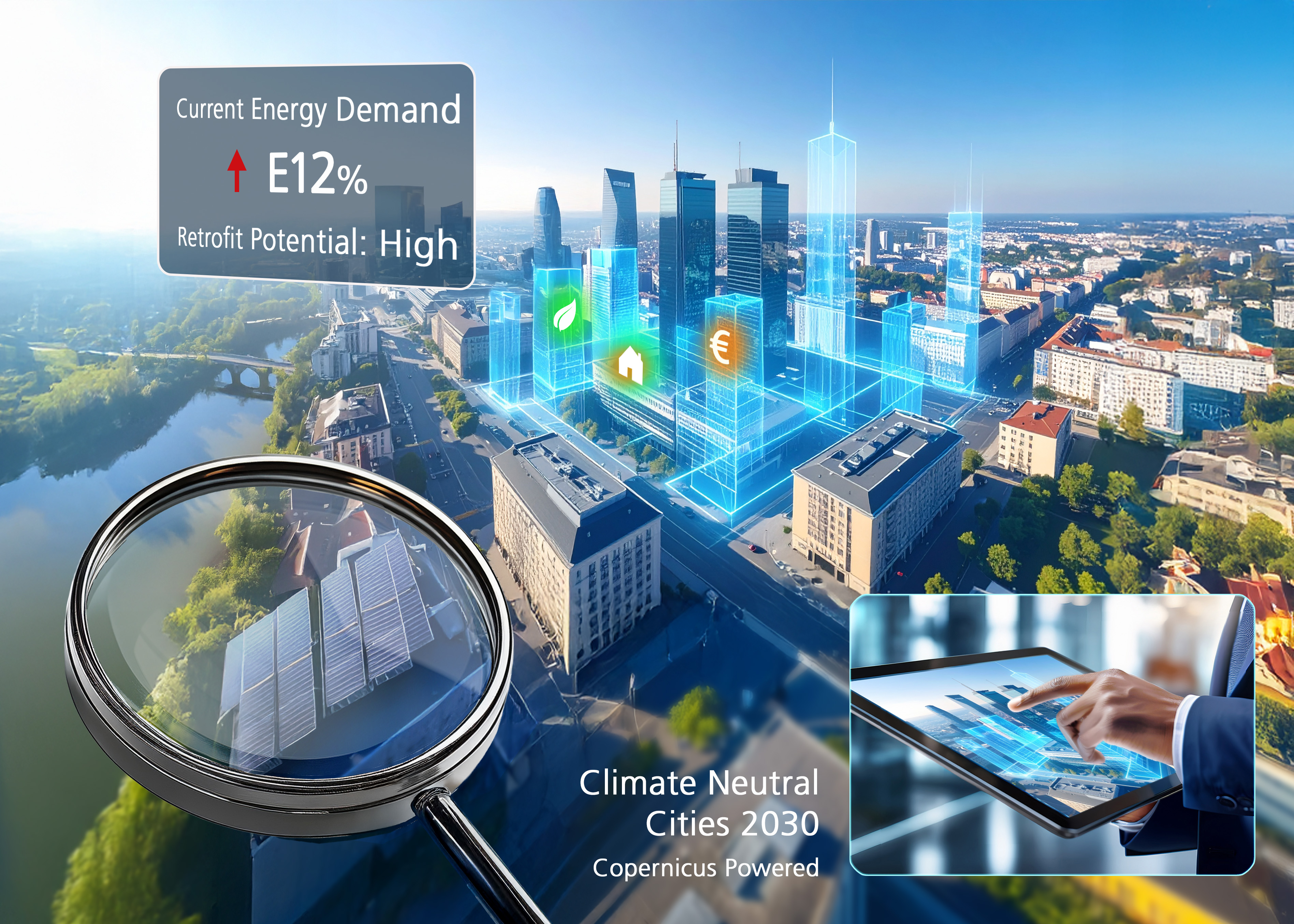Platform for analyzing and simulating energy consumption of Buildings in cities and municipalities

Efficient urban energy planning with AI, geodata and satellite data
Reducing energy consumption is one of the most important goals of European and German cities - from an economic, environmental and legal perspective. However, in order to take effective measures and become more climate-resilient, municipal planners, political decision-makers and urban developers need valid data. The problem: accurate and scalable information on the building stock and energy requirements is often outdated or incomplete - or missing altogether.
The Space4Cities - Urban Energy Scan project, together with Pauliyni and Partners, is therefore developing an AI-based platform for simulating the energy consumption of buildings and neighborhoods. Fraunhofer IIS is developing methods that combine AI models with satellite-based Earth Observation (EO) to automatically extract relevant building and location data. By linking EO, AI and digital twins, data is obtained, processed and made usable for forward-looking urban energy planning. To this end, selected building attributes are collected from geodata and satellite data, linked with energy models and merged on a simulation platform.